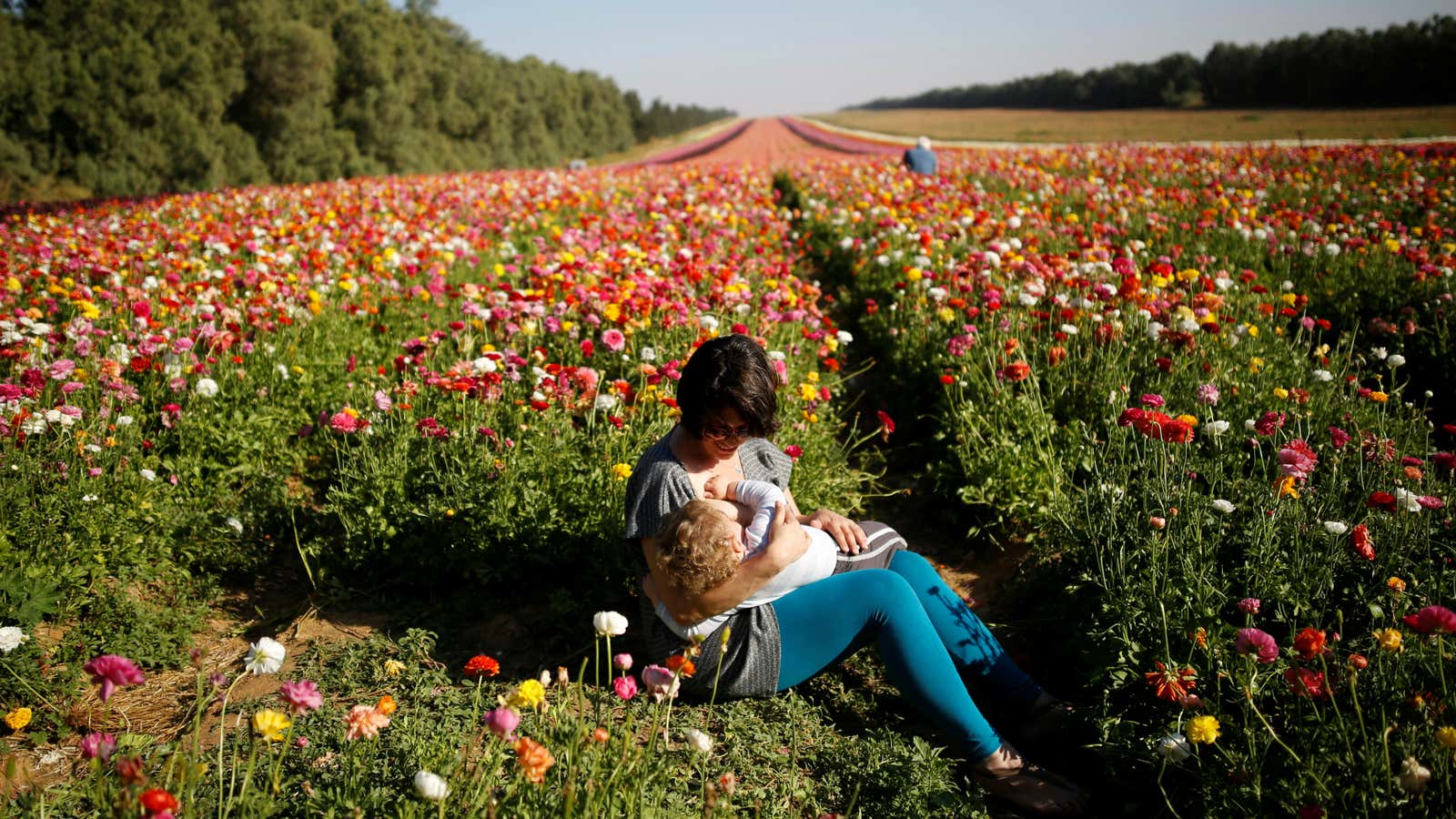Mila Kunis’ recent admission that she’s been shamed for breastfeeding in public is only the latest addition to a compendium of similar stories. Breastfeeding moms, celebrity or not, continue to face criticism for feeding their babies out in the open. Indeed, public nursing remains taboo in our sex-obsessed society—and the shamers aren’t always who you might expect.
A quick Google search on breastfeeding in public returns numerous reports of women being bullied while breastfeeding, asked to retreat into bathroom stalls to feed their babies, or worse, asked to leave the premises altogether. This harassment is by no means a new phenomenon. Breastfeeding moms have dealt with shaming long before social media and citizen journalism helped bring it to light.
“Eleven years ago on a plane, a flight attendant asked me to go [nurse] in the restroom. I was in the window seat and didn’t even think anyone could see me,” said Gabrielle Zucker Acevedo, a mother of two. “She said that I would be more comfortable in the restroom. I said no.”
Another mom of two, Jennifer Leiman, recalls a similar experience in a Target: “My infant son needed to eat. I began to nurse him and received several glares from older women.”
Read carefully and you’ll notice more than one commonality between these women’s stories (and many more like them): They were shamed by other women.
As much as it pains me to admit it, women seem to be some of the worst perpetrators in the public displays of breastfeeding (PDB) shame game. As both a consumer of social media and an online community manager for a pro-breastfeeding non-profit organization, I can attest to the fact that it’s not just men who consider breastfeeding in public immodest or disgusting or somehow impolite. This goes double for women who, like me, refuse to use a cover. Exclamations of “Where’s your modesty?!” and “Cover up!” run rampant. I’ve even seen women called whores for posting breastfeeding pictures online or defending others who have.
The logic here is baffling. Breasts are intended to feed babies. With all our progress on feminist issues, how can such a simple biological imperative remain so stigmatized?
In a word: sex. In her book Inventing Baby Food: Taste, Health, and the Industrialization of the American Diet, Amy Bentley argues that distaste for public breastfeeding in the US began with the sexualization of female breasts in the 19th century and was accelerated by the rise in processed baby food occurring around the same time. Women’s bodies began to seem less and less functional and more like objects of desire; meanwhile, baby food was sophisticated and hygienic.
Today, breasts have become synonymous with sex in American culture. This means that while advertisements and billboards can expose women’s breasts, new mothers cannot. Straight men’s sexual desires drive how we consume and accept images of women’s bodies. And they’re often the yardstick against which many (but not all) women measure and validate their worth.
It seems, then, that the disgust lobbed at women—by women—who choose to publicly breastfeed arises from two sides of the same coin: disbelief that these mamas dare use their breasts for anything other than sex (thereby defying gendered norms and expectations), and concern that breastfeeding moms are going out of their way to attract the male gaze—their males’ gazes.
I believe the controversy over public breastfeeding highlights the pervasiveness of patriarchal expectations, and the way they pit us against each other. Feminists must remember that just because we’ve made progress in some areas doesn’t mean we’re progressing as quickly in others.
Not that there hasn’t been pushback. For years, breastfeeding moms turned activists—or lactivists—have staged protests and nursing flash mobs around the world, from shopping malls in Australia and Hong Kong to the streets in the U.K. and Argentina. Mothers have also taken to social media, where accounts and pages dedicated to normalizing breastfeeding are flourishing, despite some photos being deemed offensive and removed.
These types of protests help subvert the sexual objectification of breasts while building a sense of solidarity, which we desperately need. So enough with hypocritical calls for modesty. Nursing in plain sight is neither unsanitary nor impolite. We live in a culture comfortable with exploiting breasts to sell burgers, for goodness sake. How would you rather your body be portrayed?
